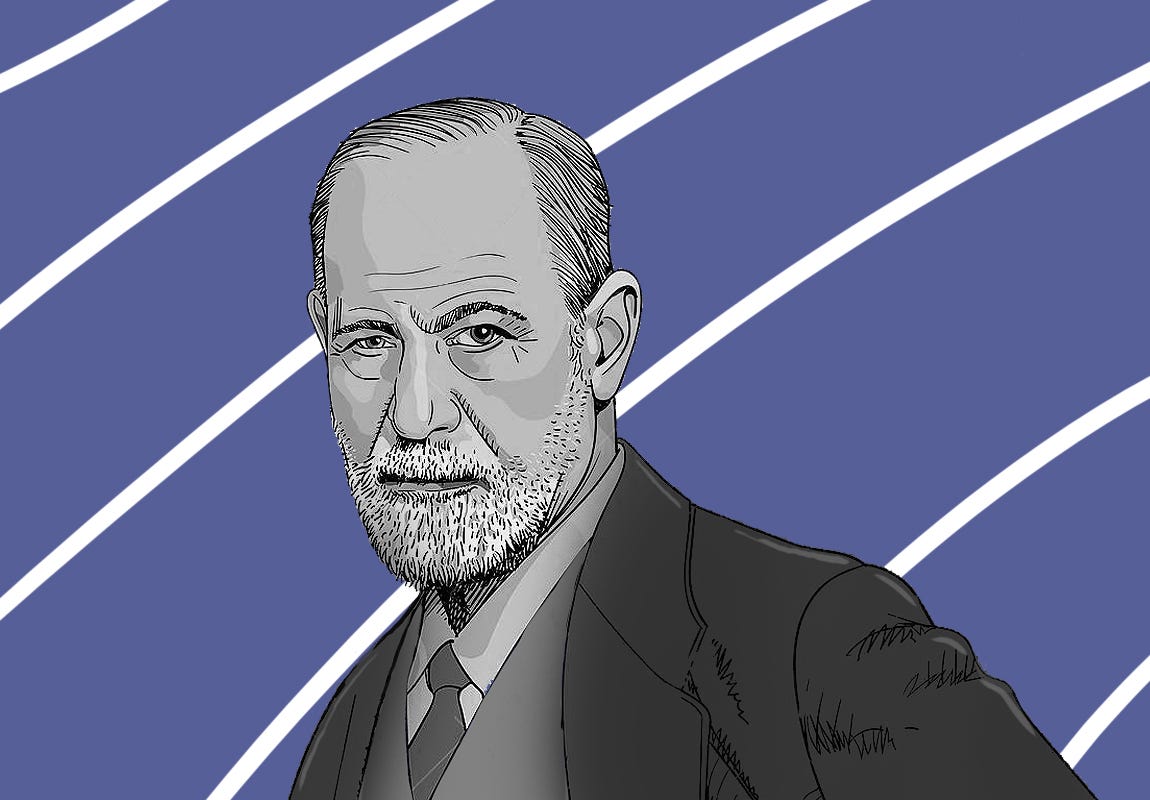Sigmund Freud: The Father of Psychoanalysis
Sigmund Freud was born on May 6, 1856, in the Austrian town of Freiberg, now known as the Czech Republic, as the oldest among the eight children of Amalia Nathansohn and Jakob Freud. When he was four years old, his family relocated to Vienna for financial reasons, where he would live and work for the rest of his life.
In 1873, he entered the University of Vienna and studied biology. During graduation, Freud studied and researched psychoanalysis and neurobiology intensely. The brains and nervous tissue of humans and animals fascinated young Freud. He completed his medical education in 1881 and started practising as a clinical assistant at the Vienna General Hospital. In 1885, during his travel to Paris, Freud was attracted to the work and theories of the renowned French neurologist Jean Charcot. Freud worked and learned neuropathology under the guidance of Charcot at the Salpetriere clinic.
His passion towards psychology led him to quit his job and pursue a private practice to treat various psychological disorders. He identified himself as a scientist rather than a doctor and experimented with Charcot's hypnotism technique in treating abnormal mental problems. Freud was deeply influenced by the work of his friend, Josef Breuer, with whom he collaborated in treating hysteria by the process of recalling painful experiences under hypnosis. After a good while of working together, they parted ways on disputes regarding their approach towards patients. Breuer disagreed with Freud emphasising the sexual origins of a patient's neuroses by neglecting other perspectives.
However, Freud became more interested in further studies on neuroses and sexual origins and continued experimenting on the same. Freud's psychoanalytic theory, inspired by Breuer, stated that neuroses originated from deeply traumatic experiences in the patient's past, which had been forgotten and hidden from consciousness. The treatment method encouraged patients to talk about any symptoms they experienced, thus bringing the experiences from their unconscious to consciousness. It confronted the patients intellectually and emotionally. He believed this method could help the patients discharge the traumatic experiences and eliminate neurotic symptoms. Freud married Martha Bernays in 1882 and had six children, including Anna Freud, who went on to become a prominent psychoanalyst herself.
Freud published his second book, The Psychopathology of Everyday Life, in 1901, which gave birth to the famous phrase "Freudian slip".
In 1895, Freud published his theories in a research paper titled Studies in Hysteria. Freud proposed that humans have an unconscious in which sexual and aggressive urges compete for supremacy with defences against them. He started the process of intensive self-analysis in 1897, leading to the groundbreaking work The Interpretation of Dreams. The book, published in 1900, became Freud's most important work, in which he argued that dream analysis could give insight into the workings of the unconscious mind. The most controversial topics produced by Freud, such as the Oedipus complex, were discussed in the book. The book was, and remains, one of the most controversial works in psychology.
Freud published his second book, The Psychopathology of Everyday Life, in 1901, which gave birth to the famous phrase "Freudian slip". In 1902, Freud was appointed as the Professor of Neuropathology at the University of Vienna. His third book, Three Essays on the Theory of Sexuality, was published in 1905. The book discussed the relationship between sex and social behaviour. His theories were not accepted by his contemporaries until 1909 when he was invited to give a series of lectures in the United States. Freud's fame grew exponentially after the publication of Five Lectures on Psycho-Analysis in 1916. In 1923 Freud published The Ego and the Id, yet another work that influenced the branch of psychology.
In 1938, Freud fled to England with his family after the Nazis annexed Austria. Freud was diagnosed with oral cancer in 1923 and underwent numerous surgeries. After a long and painful battle with cancer, Freud died on September 23, 1939. Infantile sexuality, Oedipus complex, and penis envy are some of the most controversial theories proposed by Freud. However, his over-emphasis on sexuality was the most criticised. Though his works have been both lauded and heavily criticised in his time and now, Sigmund Freud undoubtedly remains the most influential figure in the history of psychology.
Thank you for reading. Subscribe to The Scando Review on thescandoreview.com.
Happy Teaching!


